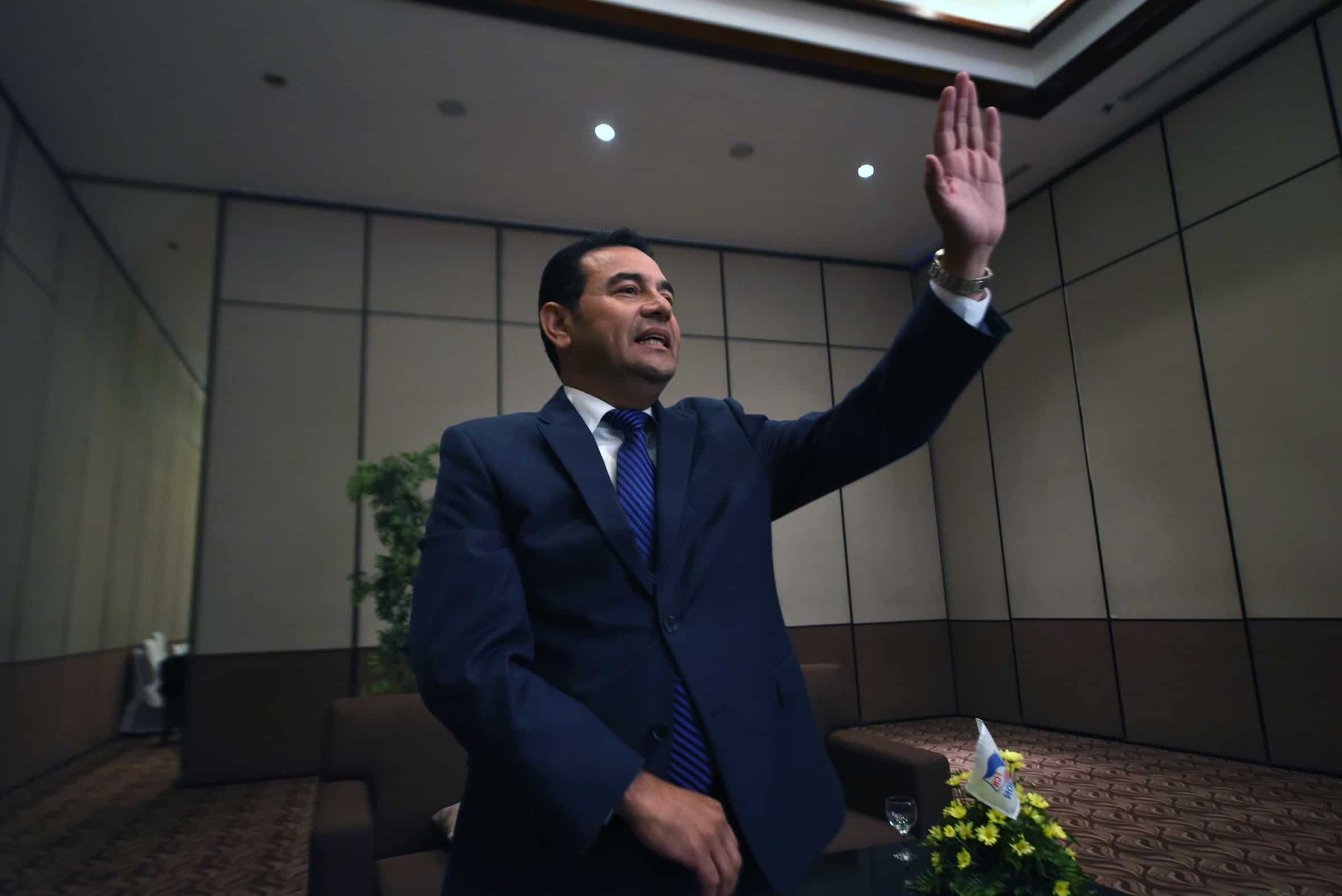GUATEMALA CITY – Later this month, a comedian with curious allies could become president of Guatemala. On Oct. 25, Jimmy Morales, a widely popular entertainer, will face off in a runoff election for the Central American country’s presidency against populist former first lady Sandra Torres.
The Guatemalan electorate surprised political observers on Sept. 6 by voting in large numbers for Morales, an unlikely presidential candidate who had trailed in the polls throughout the campaign. While he was unable to obtain a majority vote needed to win the election outright, Morales won nearly 25 percent of the votes, more than any other candidate.
Morales rapidly gained popularity in the weeks before the election as the country reeled from a corruption scandal that implicated top-ranking government officials, including former President Otto Pérez Molina, who is now in jail awaiting trial. Voters see Morales as a candidate who might be a change from Guatemala’s status quo corruption.
While the popular comedian might be a new face in national politics, his principal backers have had a long and, at times, bloody presence in Guatemala’s political history. Morales’ party, the National Convergence Front (FCN-Nación), was founded by former members of the Guatemalan armed forces. As the country still struggles to distance itself from its militarized past, some say a Morales presidency would be more of the same.
Rosita Ceseña from Guatemala City told The Tico Times that she voted for Morales because he was the least-bad choice among the candidates. “None of the candidates are the best option,” she said. “[Morales’s] party, FCN, was founded by military men and that is something that Guatemala doesn’t want,” she conceded.
Still, she said, “I believe that Guatemala has its back against the wall. We are in a very complicated situation.”
See also: In Guatemala, anti-establishment presidential candidate benefits from corruption scandals
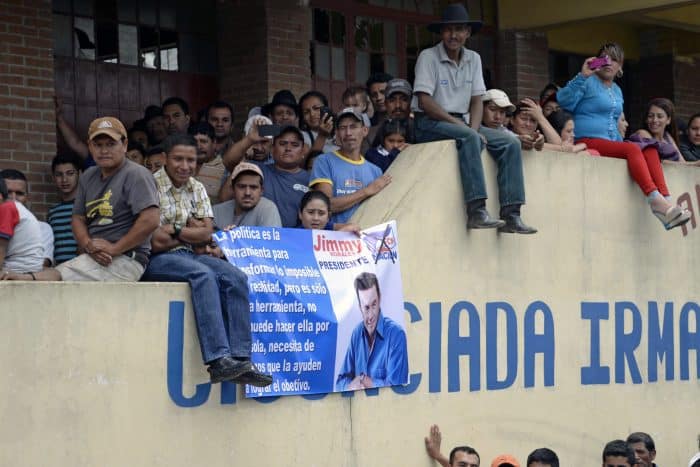
Not quite a novice
Morales is beloved across Guatemala as a funny guy. He starred along with his brother, Sammy, in “Moralejas,” a long-running comedy show that branched into a locally-successful film franchise and live act. In one of the Moralejas shows featuring the characters “Nito y Neto,” the presidential hopeful played “Neto,” a campesino who winds up becoming president.
During his campaign Morales promoted himself as a political outsider, playing off the Guatemalan electorate’s deep suspicion of the entire electoral structure. Yet, his claim to political innocence has a few caveats.
According to a spokesman for Morales’ political party, FCN-Nación, the comedian had been considering a presidential run since 2004.
In 2011, Morales ran for mayor of Mixco, a suburb of Guatemala City, as the candidate for the National Development Action (ADN) party. But he lost to the son of ex-President Otto Pérez Molina. Morales was then elected general secretary of FCN-Nación in 2013, and soon after he was declared the party’s presidential candidate.
Orlando J. Pérez, a professor at Millersville University in Pennsylvania, called Morales’ involvement with the party “a marriage of opportunity.” Pérez, who is assistant dean of the university’s College of Arts, Humanities and Social Sciences, has spent his career studying Central American militaries.
“Morales saw the party as a vehicle for his own ambition, and the party saw Morales as a new fresh face that they could use as a means to power,” he told The Tico Times.
Since the country signed Peace Accords in 1996, ending a 36-year, bloody civil war, Guatemala’s entrenched military powers have maintained a strong yet, arguably, waning role in government.
Former general and dictator Efraín Ríos Montt (1981-1982), who’s accused of committing genocide during his rule, served as a member of congress for 16 years, from 1996 to 2012 — four of them as president. The recently-resigned President Pérez Molina was a military subordinate of Ríos Montt, and has also been accused of war crimes during his time in the military and as an intelligence officer in the 1980s.
Pérez Molina was elected largely for his tough-on-crime platform, bolstered by his military background. Guatemala suffers some of the highest crime rates in the world. Now the former general faces prison for alleged corruption.
Though Morales is better known as a comedian than a military strategist, he has a master’s degree in security and defense from the private Mariano Gálvez University in Guatemala and a doctorate in strategic security from the public University of Guatemala San Carlos (USAC), according to his official bio.
Publicly, the Morales campaign promises to review Guatemala’s institutions and reform the ones that are not functioning correctly. The campaign specifically mentions security as one of the areas needing the greatest reform.
What role Morales will play in the security realm remains a question.
“The question is which Morales will emerge?” professor Pérez said. “Will it be the military side or the new face of politics?”
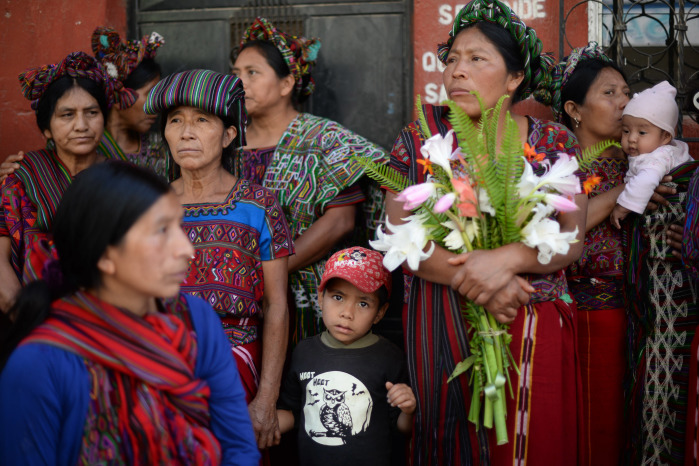
A new face for the old guard?
Morales’ party, FCN-Nación, was founded in 2007 by members of the Association of Military Veterans of Guatemala (AVEMILGUA), according to a 2012 report by Guatemala’s Association of Investigation and Social Studies (ASIES). (At the time the party was known only as FCN. Later, when Morales and his cohorts joined the campaign, the name was changed to FCN-Nación.)
AVEMILGUA is made up of former military generals, many of whom served during the country’s internal armed conflict. The army is accused — and some former officers have been tried and convicted — of brutal repression against leftist rebels and the general populace during the conflict, particularly indigenous people.
AVEMILGUA still has significant influence in national politics, most recently through FCN-Nación.
“The AVEMILGUA is a very powerful organization within the military and within the military circles,” Pérez told The Tico Times.
Some political observers and human rights groups fear that a win for Morales could lead to setbacks in democratic reforms and in efforts to serve justice for crimes committed during the civil war.
More than 200,000 people were killed or forcibly disappeared during the conflict. According to a United Nations-backed truth commission, 93 percent of all human rights violations during the war were carried out by the military and paramilitary groups. The U.N. commission found the guerrillas responsible for 3 percent of wartime violations.
Ex-dictator Ríos Montt and his former intelligence chief José Rodríguez are currently facing trial for genocide in the wartime killing of 1,771 Ixil Maya indigenous people in the country’s north. Ríos Montt was already convicted once, in 2013, but the trial was annulled on a technicality and a new trial was ordered. (Rodríguez was acquitted but he also faces a retrial.)
AVEMILGUA maintains that Ríos Montt won a legitimate war against leftist guerrillas in the Ixil region and that no genocide took place. The group has actively protested the trial against Ríos Montt.
“Most of them [the high ranking military veterans] are not ashamed of what they did,” professor Pérez told The Tico Times. “They believe deeply that they were fighting for the country, and fighting against communism.”
It’s not entirely clear to what degree Morales shares AVEMILGUA’s view of the country’s tumultuous recent past. He told Guatemala’s Canal Antigua on June 1 that he didn’t think genocide had been committed during the war, but he did think crimes against humanity had been committed. A campaign spokesman said the party had no official position on the matter.
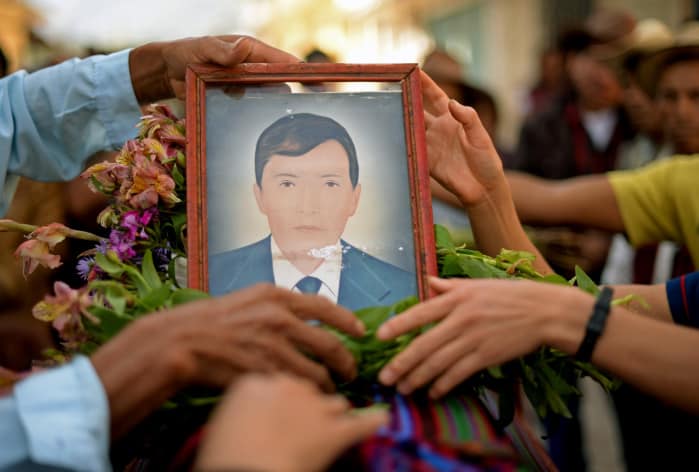
Morales’ FCN colleagues
Some members of AVEMILGUA, and subsequently several of FCN-Nacíon’s founders, have been linked to alleged war crimes.
Retired Col. Edgar Justino Ovalle Maldonado, a founding member of AVEMILGUA, was elected to the Guatemalan Congress for the FCN-Nación party in September. In the wake of his political success, Ovalle’s wartime history has resurfaced.
Ovalle was stationed in some of the bloodiest regions of the country during some of the bloodiest years of the war. He was head of operations for the Ixil Task Force between 1981 and 1982, a time of mass murders — mostly carried out by the army — of Maya Ixil indigenous people. This period, in this region, is the focus of the genocide charges against Ríos Montt.
Ovalle then served as Operations Officer at the military base in Cobán, east of the Ixil area, for three months in 1983, according to an investigation published by Guatemalan daily elPeriódico in June 2012. The report detailed the discovery of the remains of hundreds of people in mass graves in Chicoyou, within the Cobán Military Zone. The bodies, assumed to be of suspected guerrilla forces from the 1980s, showed signs of torture.
In an interview with elPeriódico, Ovalle said the situation was “very delicate” and that he knew nothing about the bodies that were discovered.
Other FCN-Nación founders, Luis Felipe Miranda Trejo and José Luis Quilo Ayuso, both served in some of the more notorious military departments in the 1980s. Each also served in areas where mass graves were later discovered.
Still, the Morales campaign denies significant involvement with the military, and claims that only Ovalle remains of the original military founders.
“They [Quilo and Miranda] are no longer in the party, nor have they been during this whole process we [the Jimmy Morales group] have been working on,” the campaign spokesman told The Tico Times.
Luis Solano, investigative journalist with a specialty in Guatemalan history, was more skeptical about the resignation of the two founding members.
“Given the recent past of FCN, and those who are the principal public figures of this party, one can conclude that a relationship continues to exist between the military founders and other members high in the army or retired,” Solano told The Tico Times. “The military character of FCN has not disappeared.”
Morales has acknowledged Ovalle’s ties to the military but said that all parties in Guatemala have military connections.
“I believe that there is not a single party that can say that it does not have military among its affiliates or within its organization,” Morales told Guatemalan online news site Diario Digital.
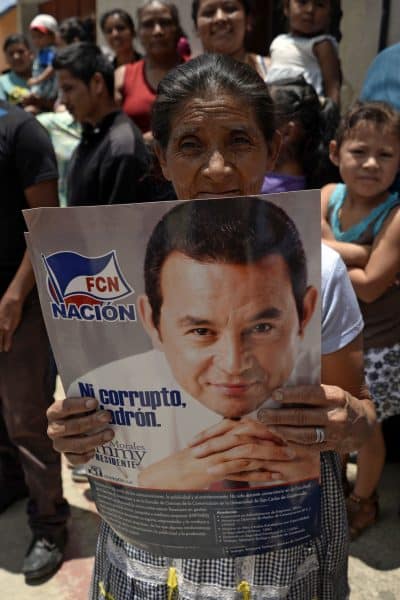
Will corruption continue?
It’s hard to overemphasize just how weary Guatemalans are of corrupt politicians. With the country’s last elected president and vice president in jail, Morales’ blank political history is a strong asset. During the primaries, the Morales campaign assured voters on nearly every poster that its candidate is “not corrupt, or a thief,” in contrast to other candidates. The campaign has promised zero tolerance for corruption.
If he wins, keeping that promise may depend on his willingness to work with the U.N.-backed International Commission Against Impunity in Guatemala (CICIG). The crime-fighting commission was established in 2007, by agreement between the U.N. and the Guatemalan government, in order to bolster the justice system and help weed out organized crime from government institutions.
Given its recent success, the CICIG is likely to be a powerful check on whatever government comes into power next, professor Pérez said.
“CICIG is now more powerful and untouchable than ever,” Pérez told The Tico Times. “Initially everyone will keep their hands in their pockets.”
But Morales told reporters at a recent news conference that he would dismantle CICIG after six years.
“Why six years? If we are going to govern, and after two years say that the mandate be over, the lack of confidence of the Guatemalan population would arise again, and we do not want that to follow us,” Morales explained. After six years, with reforms in several key areas, Morales believes the country will not need CICIG anymore.
“With morale and the trust in the institutions of government, I think that Guatemala should walk alone as is the ideal for any country, with the least amount of international intervention possible,” Morales said.
In recent months, Guatemalans have taken the future into their own hands. Following CICIG’s exposure of the customs racket, the country saw major mobilizations of people from all walks of life taking to the streets to demand a change to the corrupt power structures that rule Guatemalan politics.
“The elections are not the end, but rather the beginning of the process,” Pérez told the Tico Times. “Right now is when you have to mobilize, especially when the new candidates will be open to reforms.”
Jesse Chapman contributed to this report.

